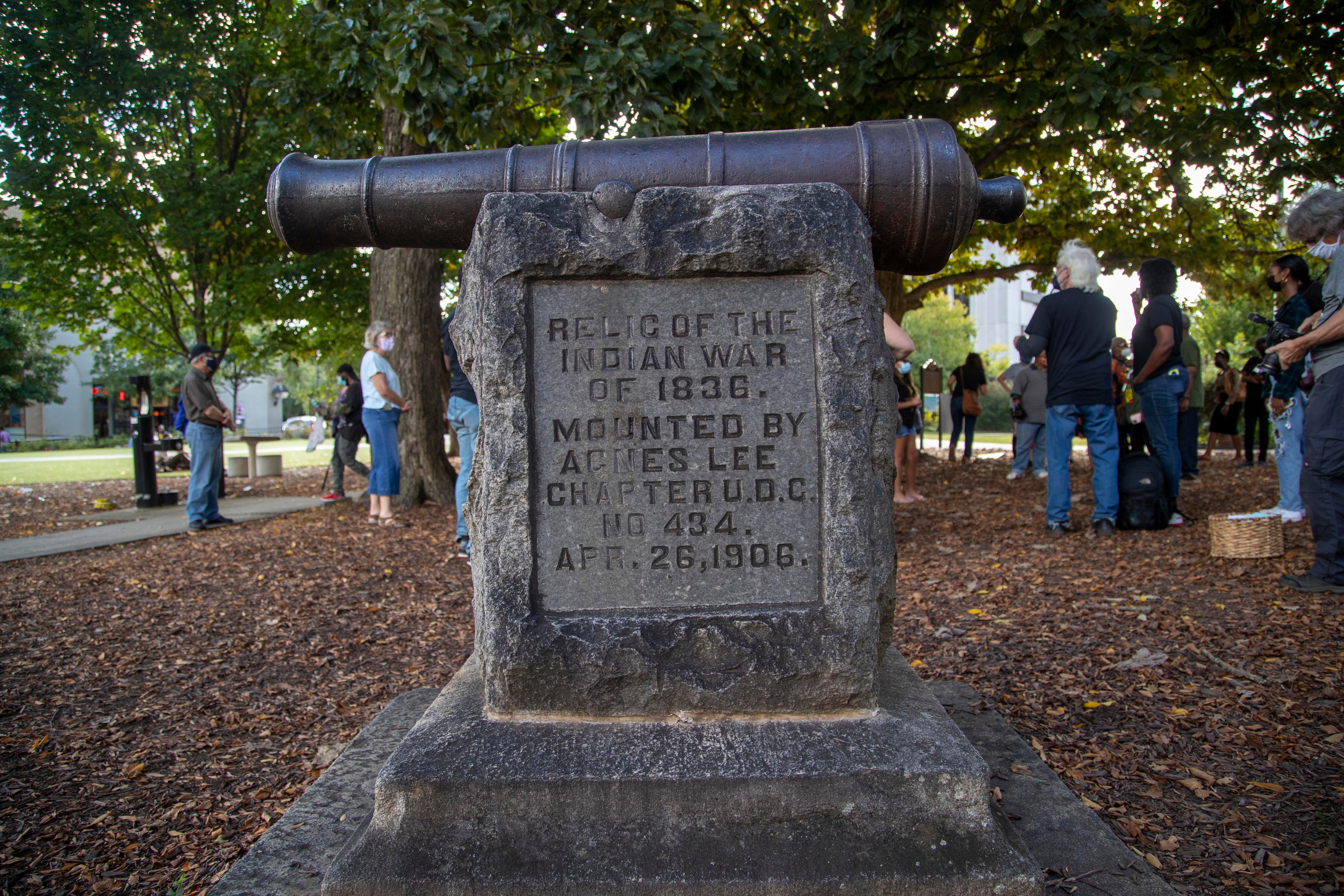Georgia county to remove ‘genocide cannon’ from city square
A Georgia county has unanimously voted to remove a “genocide cannon” from a city square where it resided for more than a century

Your support helps us to tell the story
From reproductive rights to climate change to Big Tech, The Independent is on the ground when the story is developing. Whether it's investigating the financials of Elon Musk's pro-Trump PAC or producing our latest documentary, 'The A Word', which shines a light on the American women fighting for reproductive rights, we know how important it is to parse out the facts from the messaging.
At such a critical moment in US history, we need reporters on the ground. Your donation allows us to keep sending journalists to speak to both sides of the story.
The Independent is trusted by Americans across the entire political spectrum. And unlike many other quality news outlets, we choose not to lock Americans out of our reporting and analysis with paywalls. We believe quality journalism should be available to everyone, paid for by those who can afford it.
Your support makes all the difference.A Georgia county unanimously voted Tuesday to remove a “genocide cannon” from a city square where it resided for more than a century.
The cannon in Decatur just outside Atlanta has ties to the Indian War of 1836 and has become increasingly controversial, drawing criticism from local activists who say it represents the brutal suffering of thousands of Muscogee people who were removed from their native lands.
“Public art should unite and heal us instead of sowing division,” said Phillip Cuffey, a leader with the local activist group Beacon Hill Black Alliance for Human Rights. During a public comment period, Cuffey wrote a statement urging the DeKalb County Commission to remove the cannon, the Atlanta Journal-Constitution reported.
Approximately 3,500 Native Americans died during the bloody conflict and the ensuing Trail of Tears, the U.S. government's forced displacement of Indian tribes from the Southeast.
The cannon will be moved into storage within 90 days but the history and the ownership of it remains in question. In 1906, it was placed near DeKalb's historic courthouse by a chapter of the United Daughters of the Confederacy. However, there’s no paperwork showing it was donated to the county, the city of Decatur, or made public property, according to the Journal-Constitution.
It's also unclear whether the cannon actually dates back to the war — it's own inscription labels it as a relic.
The Beacon Hill Black Alliance for Human Rights held multiple protests over the past year, including on Monday, Oct. 11, which is both Columbus Day and Indigenous Peoples Day.
“I appreciate all the commissioners for their support in getting to this moment where we can, just one day after Indigenous Peoples Day, move forward with this,” said Commissioner Ted Terry, who co-sponsored the resolution to remove the cannon.
Commissioner Mereda Davis Johnson, the other sponsor, said the cannon is beyond saving.
“Whatever may replace the relic, it will be a symbol of love, not hate,” she told the Journal-Constitution after Tuesday's vote. “We don’t want to tolerate any symbols of hate or oppression.”